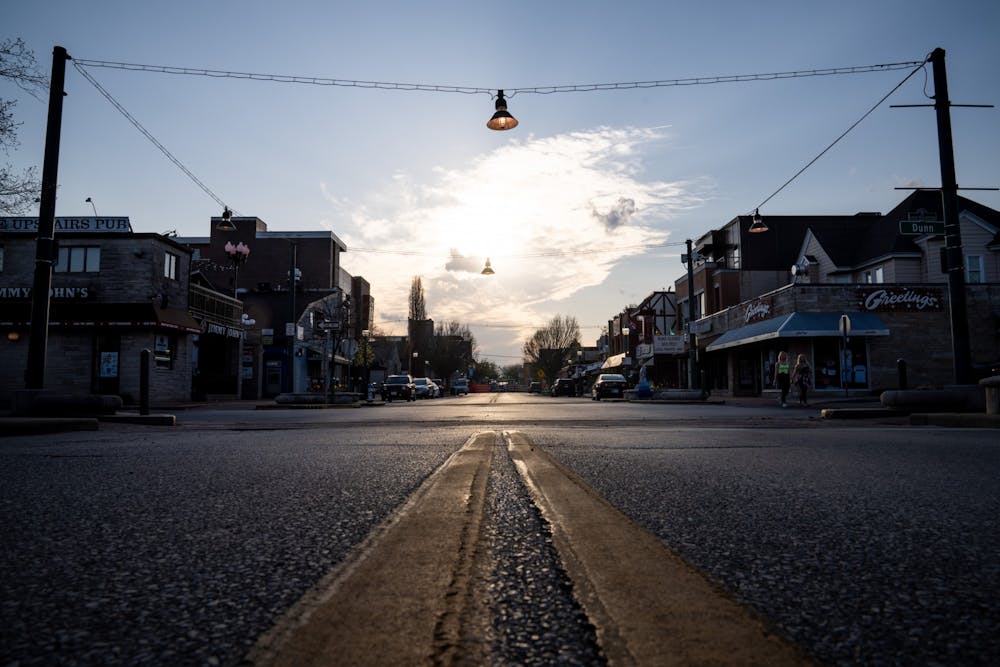
[ad_1]

Cars pick up carry-out meals April 8 on Kirkwood Avenue. The IDS spoke to Bloomington Deputy Mayor Mick Renneisen about the financial fallout the loss of a fall sports season will have on the Bloomington community.
Stadiums, hotels and restaurants around Bloomington will see less activity this fall as a result of the Big Ten’s decision on Aug. 11 to cancel fall sports.
Bloomington Deputy Mayor Mick Renneisen said public safety is the most important consideration of government work. He said he understands IU’s decision to make that a priority, but worries about the effect it will have on the city.
The cancellation of fall sports will have large economic consequences for the city, according to Renneisen, and without a football season, he expects a $30 million loss for Bloomington’s economy.
While Renneisen believes hotels and restaurants will be negatively affected the most by this loss, it will also have an effect on retail businesses, grocery stores and tourist attractions. In preparation for the return of students for the fall semester and athletics, businesses had increased employment to meet the expected increase in demand.
“Tourism is a huge part of the economic engine of our community,” Renneisen said. “Athletics are the easiest and most visible way to see that.”
After the cancellation of two of Bloomington’s biggest tourist weekends, Little 500 and spring commencement ceremonies, the city attempted to alleviate the strain put on Bloomington’s economy by the pandemic.
Following the expiration of the federal government’s Paycheck Protection Program which was a forgivable loan designed to incentivize small businesses to retain their workers on the payroll, the city allocated $2 million of the funds intended for a new convention center as a local form of PPP to assist local businesses that rely on tourism and student traffic.
Along with this, the city implemented a plan that had already been in discussion prior to the pandemic to close off Kirkwood Avenue and allow businesses to set up outdoor dining with social distancing.
“The optimists that Americans are, we hope for the best and plan for the worst, “Renneisen said. “I’m afraid right now we’re getting a little of the worst.”
Renneisen said the next worst thing that could happen would be another shutdown of the university, which would devastate the local economy.
Renneisen also has a personal stake in the cancellation. For the past 35 years, he has worked as the internal press box announcer at Memorial Stadium for football games and was looking forward to this season after the team had its first winning season since 2007.
Renneisen, who would normally be spending this time preparing for the first home football game, said all fall sports athletes, coaches and staff are an important aspect of Bloomington’s community and culture.
“I just hate that we won’t all be able to experience that this fall,” Renneisen said. “It’s certainly not going to be the normal fall in Bloomington.”
Like what you’re reading? Support independent, award-winning college journalism on this site. Donate here.
[ad_2]
Source link


